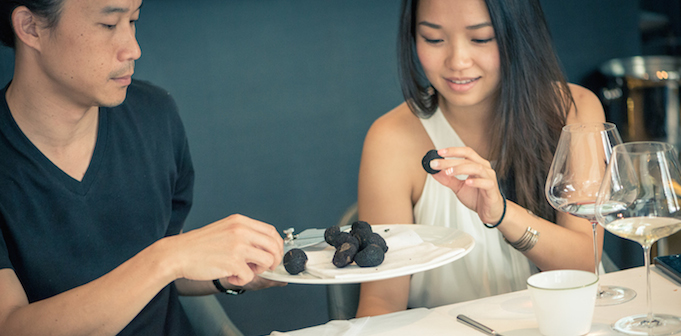
Source: IB Photography Limited
By Megan Mulia
As Asia’s middle class grows to 3.2 billion by 2030, high-quality Australian-made brands are finding millions of new customers in some of the world’s fastest growing markets.
And as one Australian truffle producer, The Truffle and Wine Co., has found, the opportunities extend beyond Australia’s well-known exports like beef and dairy, to a growing suite of high-end and boutique products.
While success was not instantaneous, the company’s focus on building product awareness, strong local relationships and smart negotiation over several years enabled it to grow Hong Kong into one of its largest export markets.
From humble beginnings to Hong Kong’s ‘dining boom’
The difference could hardly be starker between Hong Kong, the densely populated beacon of Asian modernity, and 4000-population Manjimup, where The Truffle and Wine Co.’s farm is located.
But among the skyscrapers of Hong Kong, the company has found a new market for its truffles, which are becoming a delicacy on the menus of some of the city’s finest restaurants.
With some trial and error and a forward-thinking commercial strategy, it has established itself as the pre-eminent truffiére in the Southern Hemisphere, and now contributes a large share of Western Australia’s $8 million in annual truffle exports.
Know your product
When The Truffle and Wine Co. first exported to Hong Kong, market recognition for Australian truffles in Asia was low, with France, Italy and Spain dominating the market.
“Research we conducted in 2010 highlighted that less than two percent of the world’s top chefs knew about Australian truffles,” says Alf Salter, chairman of The Truffle and Wine Co.
To make their Tuber Melanosporum (black perigold truffles) a hit in Hong Kong, the company set about educating high-end restaurants and chefs about the quality of Australian truffles.
After the truffles gained popularity for their unique taste and contrary growing season to European varieties, Salter says focus has been on continuing to develop deeper recognition for their product in Hong Kong.
He says extensive product training is key.
“We’re very involved with our Hong Kong clients, working with them on integrating truffles into their way of cooking and on their menus,” he says.
The company has also recruited high-profile Hong Kong chefs to act as ‘truffle ambassadors’, helping promote the delicacy to diners.

Source: IB Photography Limited
Find the right distributors
Finding the right distributor presented another challenge to selling into Hong Kong’s highly competitive dining scene.
Salter recommends building a strong relationship and establishing shared goals with your distributor to ensure they are invested in the product’s success.
“Initially, when we entered the Hong Kong market, we didn’t have the right partner and tried out a couple before we found the current one,” says Salter.
It would have been tempting to engage a large, experienced distributor to sell their product, but Salter tried a different approach.
“We always seek out up and coming distributors. This enables us to frame the relationship from the beginning to be mutually rewarding.
“From day one, I asked our Hong Kong distributor what his goals were, who his biggest competitors were, and which restaurants were his dream to sell the product to.”
Negotiation is key
Even with the right local partners, a strong understanding of local culture and business etiquette is needed to reach mutually rewarding deals.
Salter says exporters shouldn’t be afraid to step back from risky deals if they can’t negotiate a beneficial outcome.
Having in-depth knowledge of their partner’s culture and their approach to business helped The Truffle and Wine Co. determine whether they would be a successful fit, but initial caution was critical.
“We don’t start off with a strict contract with a new distributor as that way if we find they aren’t a correct fit, we can end the partnership,” he says.
“They will demand it upfront – but hold off on offering exclusivity until you’re sure you have the right distributor.”
And, thanks to this focus on building relationships and educating customers to ensure the product resonated with consumer demand, the truffles of Manjimup have found their home in one of the most competitive dining scenes in the world.
Megan Mulia is the director of research for Asialink Business, a national centre providing practical training, information products and events and networking opportunities to help organisations and individuals do business with Asia.


COMMENTS
SmartCompany is committed to hosting lively discussions. Help us keep the conversation useful, interesting and welcoming. We aim to publish comments quickly in the interest of promoting robust conversation, but we’re a small team and we deploy filters to protect against legal risk. Occasionally your comment may be held up while it is being reviewed, but we’re working as fast as we can to keep the conversation rolling.
The SmartCompany comment section is members-only content. Please subscribe to leave a comment.
The SmartCompany comment section is members-only content. Please login to leave a comment.